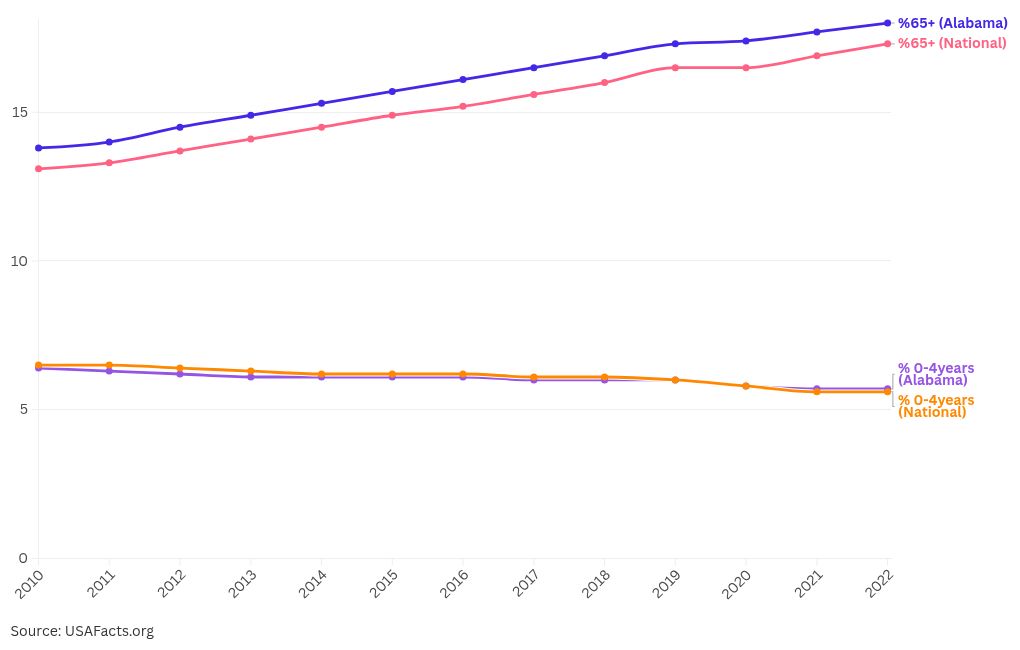Where Huntsville tax money is spent: Nonprofit offers ‘priceless’ dementia care as Alabama ages
This is part of a series looking into nonprofits that receive funding from the city of Huntsville. See previous stories here and here.
Linda Wilbourn had advanced dementia, a form of cognitive decline, when she started attending an adult day program organized by the Legacy Center, a nonprofit in Huntsville that cares for older adults.
The family shared that information in a document the Legacy Center provided to state legislators on its 2025 State of Aging Legislative Bus Tour. The nonprofit organized the tour in January to highlight the needs of Huntsville’s aging population and showcase its work.
Wilbourn’s family said the Legacy Center provides individualized care for older people, calling the services at its adult day care “priceless.” The program is located at the Calvary Hills Community Center on Fairbanks Street.
Founded in 2015, the nonprofit aims to address the growing care needs of north Alabama’s aging population, people living with dementia or traumatic brain injury. Chief visionary officer and founder Chanda Crutcher drew inspiration from Dementia City in the Netherlands.
She believes the proactive care the organization she founded provides reduces strain on the healthcare system. The Legacy Center operates the Generations Adult Day Program and a clinic at Johnson Towers, a federally subsidized apartment complex for older adults in Huntsville.
“If we don’t get seniors connected in ways that are preemptive, they’ll use the ER as their primary care physician,” Crutcher told AL.com. ”That’s going to cost way more than just having a clinic, which is what we have in our subsidized housing. So we can catch things through education and preemptive screenings. Maybe it’s not that you’re mentally ill. Maybe you’re malnourished. You’re acting out because you’re hungry. Those are the conversations we try to have.”
The organization said it is responding to a growing need.
Between 2010 and 2022, the percentage of Alabamians 65 and older grew by more than 4%. While this tracks the national trend, Alabama’s percentage has consistently exceeded the national average.
Of the nearly 7 million people living with Alzheimer’s (a main cause of dementia) nationwide, more than 100,000 are Alabamians. Alabama also ranks higher than most states—except Mississippi—in deaths from the disease, relative to its 65-and-older population, according to the latest data from the National Center for Health Statistics
Counties with larger Black populations in Alabama bear the heaviest burden of Alzheimer’s dementia in Alabama, according to a 2023 research paper.
Prevalence among those 65 and older ranges from 9.8% in Cullman County, where less than 1% of the population is Black, to 17.8% in Greene County, where about 80% is Black. In total numbers, Madison County (7,000) ranks third for residents over 65 with Alzheimer’s dementia, behind Jefferson (14,900) and Mobile (8,900) counties.
This year, the Legacy Center is receiving a $60,000 grant from the city of Huntsville and $10,000 from the city of Madison; both cities are in Madison County.
Executive Director Morgan Saintjones said this is the first year Madison has contributed funding.
“I’m excited about that,” she said.
In 2023, the Legacy Center received $297,573 in contributions and engaged 300 volunteers, according to the information it provided the Internal Revenue Service.
Huntsville has provided $210,000 over the past four years to the Legacy Center, $50,000 of which came from federal COVID-19 relief in 2019, and the rest from city coffers.
This year’s $60,000 contribution from Huntsville is 15% of the Legacy Center’s total budget, according to a city document listing its 2025 nonprofit grant recipients.
Saintjones said that grant supports the adult day program, where older adults with cognitive decline participate in activities to enhance mental function, emotional expression, and social engagement through nonpharmacological interventions. The program includes art-based ballet classes and vocal lessons.
Saintjones said the organization strives to provide low-cost, quality programming in collaboration with partners. “You create spaces where people with dementia can come and maybe spend the day,” she said. “So you can stay home with your family.”
She described the adult day program as “the first arts-based intergenerational program” specifically for those living with dementia.
“It is one of our most popular programs,” she added.
The goal, she said, is to replicate the program across all five Huntsville districts.
The Legacy Center offers volunteer opportunities at both the day program and the Johnson Towers clinic. The clinic needs volunteers to check on seniors door-to-door, while the adult day program welcomes people of all ages to spend time with participants. Interested individuals can email [email protected].
